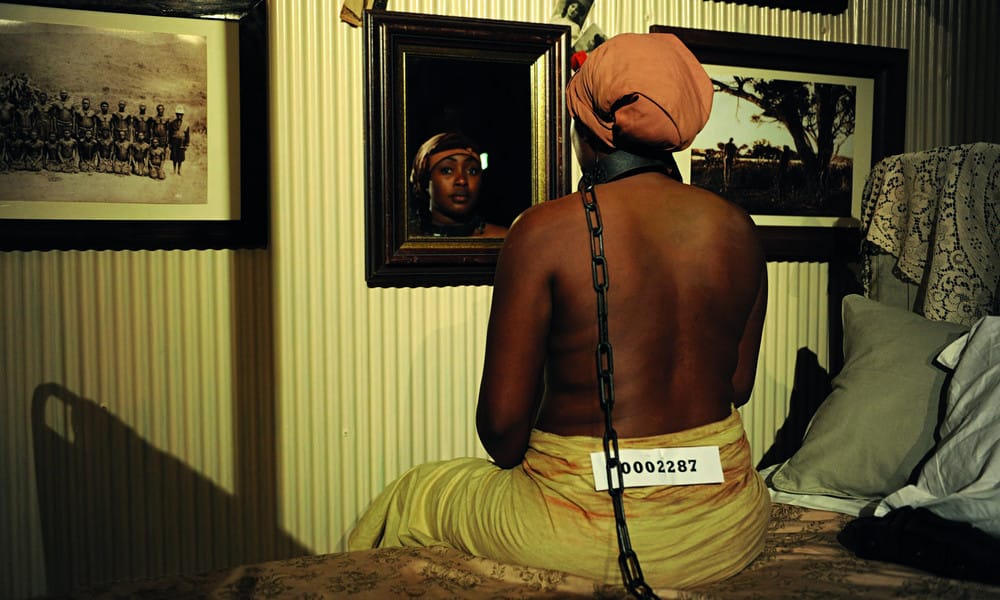Free speech, censorship, and backbone for the easily offended
Why bother writing an article about free speech today in Britain?

Why bother writing an article about free speech today in Britain? We no longer ban books – surely freedom of speech is a concern of the past.
Unfortunately that is not the case. Just last month, the Barbican planned to launch an art exhibition based on a ‘human zoo’ of the type that were common for wealthy Europeans to view right up until just over a hundred years ago. It contained black actors chained and in cages, who were to keep eye contact with the visitors as they entered one by one into the gallery. It was intended to be a reminder of the imperialism and slavery that were realities not so long ago in this country, as well as to start a discussion about the continued exploitation of Africa’s resources today. However, due to a protest and petition, the exhibit was seen as too offensive and never opened.
Would anyone really have walked around what was clearly meant to be an uncomfortable and shocking spectacle and thought ‘yep, slavery was a great idea’?
Who are these people who are so easily offended, or so easily led that an art exhibit they voluntarily signed up to see would have caused them to do anything other than reflect on some of the more awful parts of our history?
This is not a one-off example. It is true that we no longer have to fear government censorship, but censorship of a much more dangerous kind is on the rise. We are censoring ourselves for fear of causing offense.
This applies particularly to Universities. They are meant to be places of discussion where all ideas can be openly talked about. Instead, the National Union of Students and individual Universities themselves are regularly banning things that they deem offensive, partly through the No-Platform policy, which allows Student Unions to ban people with views they deem unacceptable from speaking at events around the university.
The idea of such a policy, no matter the good intentions behind it, completely misses the point of why freedom of speech is so vital. Even if the speaker banned was a ludicrous sexist who came to the university to actively promote sexism, surely it would be better to challenge that speaker openly rather than push uncomfortable truths into the dark, where they don’t go away.
Some people are racist, sexist, homophobic etc. Stopping them saying it in some areas of the public isn’t going to stop that. It won’t even prevent them finding followers, when anyone can have a blog, or get access to some truly vile internet communities where any horrible opinion you happen to be tempted by will be endorsed.
Restriction of debate on any issue implies that what people are saying in opposition is so powerful or distressing or significant that it simply cannot be discussed. It implies that the ‘acceptable’ opinion is flimsy and cannot stand up to argument. This is why we need to be sensible in public life, at University and elsewhere, and trust people to be able to have healthy debates on difficult issues.
This is a difficult topic. Most people have a place where they would find it easy to draw the line and refuse to hear other’s opinions – be it at the idea of a pro-life stand at a Freshers’ Fair, someone suggesting that a rape victim brought it on themselves, or someone tweeting abuse at Madeleine McCann’s parents. Accepting free speech means that you are going to encounter the most horrific opinions. However, censoring it, sending people to jail for what is just an opinion can only lead to worse things.
As Spiked, an online magazine that runs a campaign for freedom of speech says, free speech is the “foundational freedom upon which every other right we enjoy – from the right to vote to the right to protest – is built. Without the freedom to think, write, publish, depict, and debate as we see fit, all our political and social rights become meaningless.”
A couple of weekends ago at the Battle of Ideas, an event that champions open debate, WORLDwrites, a citizen TV charity, launched a free speech helpline. It doesn’t offer sympathy or counselling for those offended though - it is intended for people who don’t want to be victims, and offers backbone.
Helpline organiser Marisa Pereira said: “The Free Speech Helpline will encourage people to stand up for themselves. The curtailment of free speech is so often justified today on the basis we are all too vulnerable to cope with it, especially women and minorities. But this does no one any favours – it just drives backward ideas underground, leaving them unchallenged.”
Free speech does mean encountering deeply unpleasant opinions, and questioning your own worldview, but it’s the only option there is in a truly democratic society.
The Free Speech Helpline is available on 0208 525 7912.









